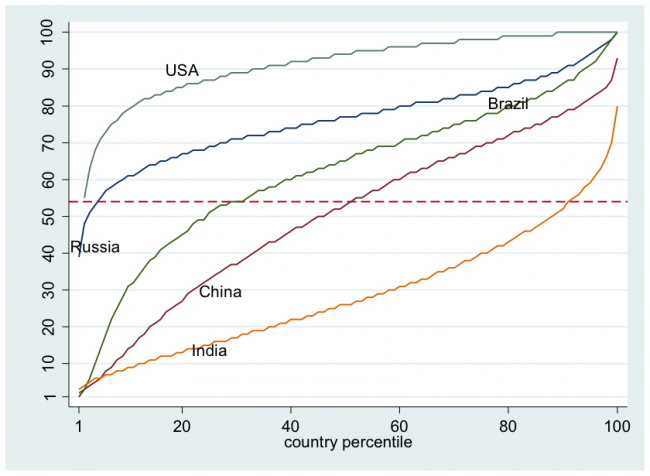Dear Americans: You Are All Rich
I have made the point a number of times that the bottom 20th percentile (in term of income) of US families would actually be in the 80th percentile in many nations. In fact, it turns out that the 20th percentile person in the US would not just be relatively rich in many other countries, but on a global scale sits around the 85th percentile of world income. Virtually no one in the US would even be in the bottom half of world income. This chart from a recent study was shared by David Henderson:
The axes are not well labelled here. How to read this is the X axis is the income percentile of a person in their home country. Then one reads up, and the Y axis is the income percentile that person would be at for the whole world. So a person who is at the 20th percentile in the USA is around the 85th percentile worldwide. It is interesting that by hugging the 45 degree line, China mirrors the world average. If you want to envision the distribution of absolute incomes around the world, think of China.
This raises a certain question for American redistributionists. Ayn Rand used to point out that redistributionists always love the idea because they feel like they got to pick the pocket of the guy wealthier than them, forgetting that someone poorer gets to pick their pocket. Essentially, in a truly global redistribution scheme, everyone in the US would be paying rather than receiving.
A better way to achieve global income equality would be to have more countries emulate the American rule of law, property rights regime, and relatively free markets. Ironically, most American redistributionists support the opposite, arguing that in many was the USA should emulate the authoritarianism of these poorer countries. Which I suppose will achieve global income equality as well, though in a much less attractive way.



